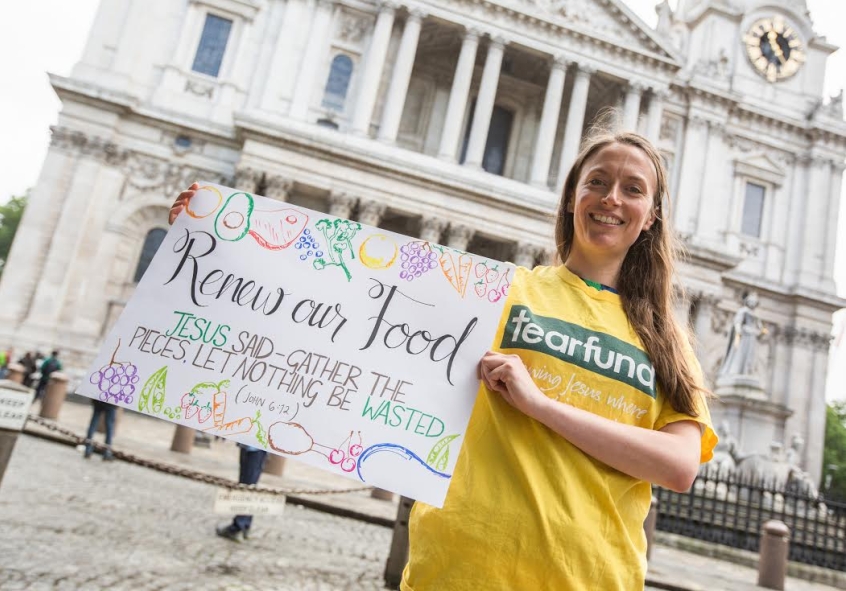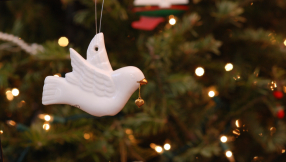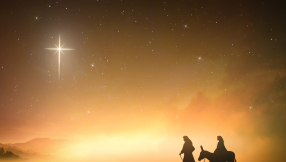
Oh how I would love to be a woman who never has to take her bins out. Not because I am yearning for someone to do it for me (although to be honest that would be ideal) – but I am starting to aspire to be one of those people who puts very little in their landfill bin at all.
Apart from Jesus, who as we know was not keen on waste either (John 6:12), one of my inspirations has been Zero Waste Week. Rachelle Strauss, its founder, has spoken of how being caught up in the Boscastle floods in 2004 caused her to think about the challenge of climate change and the need to live more sustainably. She started blogging about her experiences trying to reduce the amount she put into her own bin before setting up Zero Waste Week to encourage others to do the same. Now in its 10th year, ZWW is now a thriving global campaign with a huge following via social media (reportedly reaching 36 million).
So this week my Twitter feed has exploded with thousands of positive stories, tips and innovations from a community of people across the world choosing to walk more lightly on the earth. They're taking steps like ditching plastic bottles, swapping food waste tips, switching to 'naked' packaging-free cosmetics, and seemingly upcycling anything and everything they can get their hands on.
This might all sound very worthy, or perhaps just common sense. Who doesn't hate waste, after all? With four out of five Britons 'very concerned' about our waste problem, it's something that naturally we might all want to do something about. But for Christians, is there a deeper connection that we can make between what we waste and our walk with God? Can wasting less be an act of worship?
I believe so. As followers of Jesus we are on a journey of transformation, and making a daily choice to walk more lightly on the earth can be an important part of how we show our love for God and all that he has made. As Paul writes, "So here's what I want you to do, God helping you: Take your everyday, ordinary life – your sleeping, eating, going-to-work, and walking-around life –and place it before God as an offering' (Romans 12:1-2, The Message).
Let's consider one of life's essentials and how we use it – our food. God created us to consume – we need to eat to survive, yet food is not just fuel. We are given a variety of types, textures and tastes to enjoy, and food brings us together in community in many ways. Tim Chester writes: 'Food reminds us of our dependence on other people. We are tied into a network of farmers, traders, shopkeepers, cooks, families, traditions of gastronomy. Above all we are dependent on God... Every meal is an opportunity to receive God's good gifts with thankfulness.'

Yet a third of all food grown in the world goes is never eaten. Each month in the UK we waste enough bread from our homes to fill St Paul's Cathedral, and in our fields supermarkets' strict cosmetic standards mean that a third of vegetable crops aren't even harvested. In a world where so many are going hungry, this can't be right. It seems that we have become caught in a harmful grow-and-throw food cycle which does not appear to value the gifts that God has given.
It's not just the connection with God's blessing to us that lies broken when we waste food. Food waste fuels climate change, leading to more droughts, floods and less reliable rain, making life harder for people in poorer countries to feed themselves. Tearfund sees this first-hand in the communities that we work with across the world. If we continue to live in a way that brings harm rather than renewal, families will be pushed further into poverty across the world.
As Jesus shows us with the feeding of the 5000, it really doesn't have to be this way. Then, he asked his disciples to gather up the pieces so that nothing would be wasted - and there was more food leftover at the end than they had at the beginning. When we use what we have to the full, share with each other, and place value on what God has given, there is enough. As part of our daily life, we can walk with God in gathering up the pieces.
One way to do this is to join with Tearfund's Renew Our Food initiative, which is running as part of Zero Waste Week. Thousands of people so far have taken the pledge to refuse to buy more than we need, reduce what we put in landfill, and share the tips that we have. Pledge to do this here. At the same time we can call on our supermarkets to do the same, helping to reduce waste from farm to fork. Churches across the UK are holding Food Waste Feasts, drawing people together over a delicious meal using food that would have gone to waste. With World Food Day approaching on 16 October, could we see 10,000 Christians gathering up the pieces in this way? We hope so.
So as I take my bins out this week, they feel a lot lighter. And I do too.
Clare Lyons is senior campaigner at Tearfund. @TearFundUK













